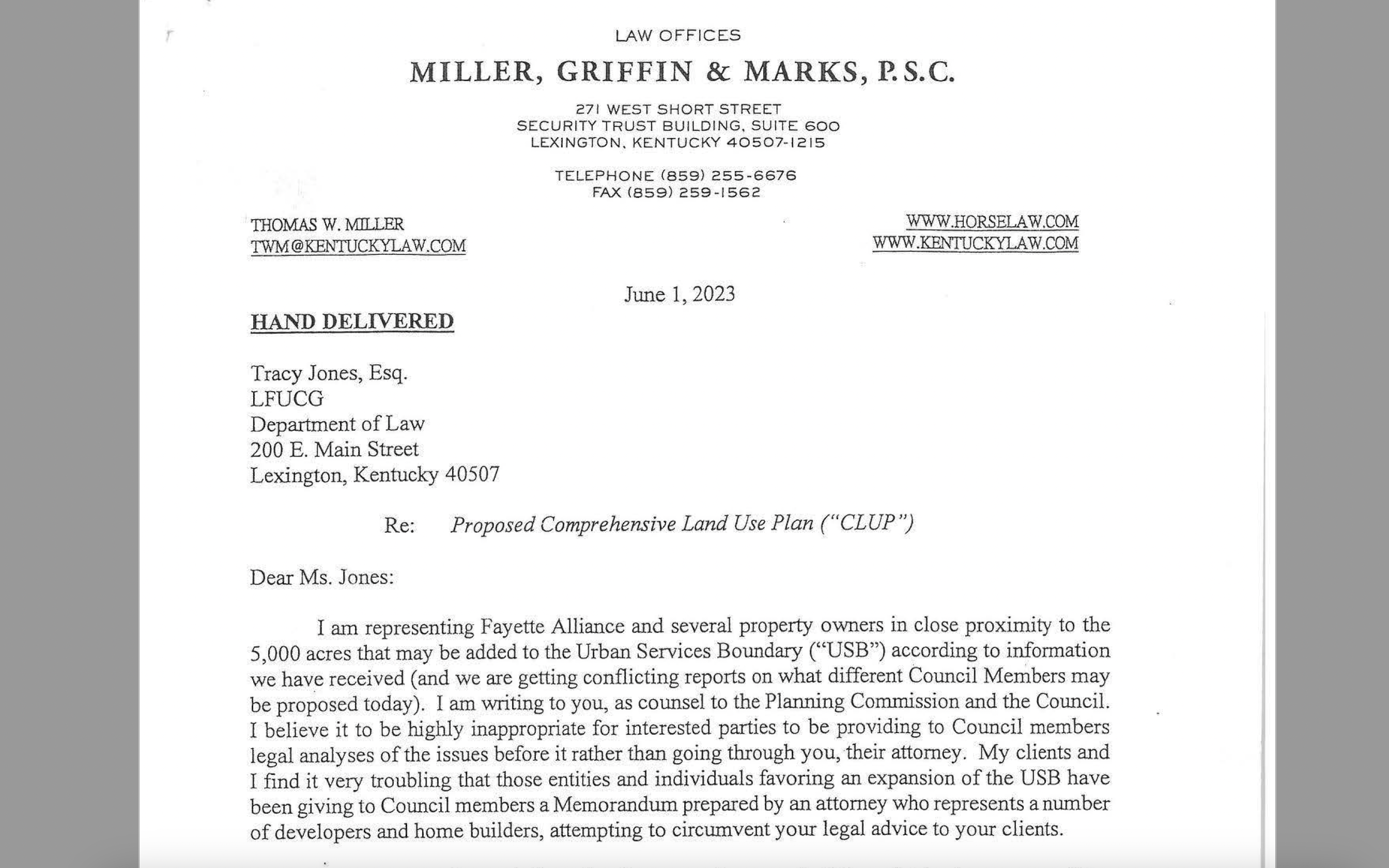In Lexington, A Battle Over Boundaries Highlights Deeper Legal Tensions

Lexington’s Council and the Fayette Alliance face a bitter contest over a proposed boundary expansion that carries legal consequences and civic implications.
LEXINGTON, KY — Amid the idyllic landscape of Lexington, a legal storm is brewing. A contentious decision by the Lexington-Fayette Urban County Council to expand the city’s Urban Service Boundary (USB) has sparked an intense dispute with local advocacy group, the Fayette Alliance. At stake is not only the character of this cherished Kentucky landscape, but the legal and procedural integrity of the Council’s governance.
Both parties are trading criticism. While the Council is facing accusations of hasty decision-making and lack of transparency, the Fayette Alliance is fending off allegations of intimidation, as highlighted by Council member Denise Gray.
Thomas W. Miller, an attorney representing the Fayette Alliance, recently fired a salvo in the form of a detailed legal memo, questioning the Council’s actions and hinting at a potential lawsuit. The memo outlines what it purports are critical procedural oversights and violations by the Council.
Critics argue that the Council’s conduct demonstrates a rush to push through the USB expansion without undertaking the requisite statutory steps. “The Council has failed to comply with the mandatory requirements of KRS Chapter 100 to update the 2013 CLUP before it attempts to expand the USB,” states the memo.
Also highlighted is the Council’s supposed lack of a “public hearing after notice” as required by law, a critical step in adopting or amending a comprehensive plan. This is cited as one example of where the Council may be failing to follow the law meticulously, a cornerstone of sound governance.
The area proposed for addition to the USB, known for its fertile soils and historic districts, is perceived to be under threat without just cause. Critics argue that the Council has not demonstrated why, if expansion is necessary at all, it should occur in this specific location. As stated in the memo, “There has not been any consideration as to why, if the USB needs to be expanded (which we dispute) it is in this particular location.”
The Fayette Alliance’s response, while a robust defense of local interests, is not without its own controversy. Denise Gray’s characterization of the Alliance’s approach as “intimidation” highlights the adversarial nature of this discourse. The Alliance’s memo, laden with legal jargon and ending with a pointed threat of legal action, can be seen as a significant escalation in this civic debate.
Some argue that such an aggressive approach undermines cooperative dialogue, thereby hampering the search for a mutually beneficial solution. The Alliance’s seemingly combative stance could be seen as exacerbating an already fraught situation, rather than promoting a collaborative approach towards conflict resolution.
As this contentious issue continues to unfold, it serves as a poignant reminder of the delicate balance between civic interests, the rule of law, and good governance. Lexington’s Council and the Fayette Alliance, both deeply invested in the city’s welfare, must strive for open dialogue, mutual respect, and procedural correctness. As they navigate this fraught legal landscape, the hope remains that their efforts will best serve Lexington and its cherished landscapes.
Recommended Posts

Kamala Harris needs a VP candidate. Could a governor fit the bill?
Fri, July 26, 2024
After cyber-attack on Jefferson County Clerk, Fayette counterpart discusses precautions
Fri, July 26, 2024
An eastern Kentucky animal shelter is swelling this summer
Fri, July 26, 2024